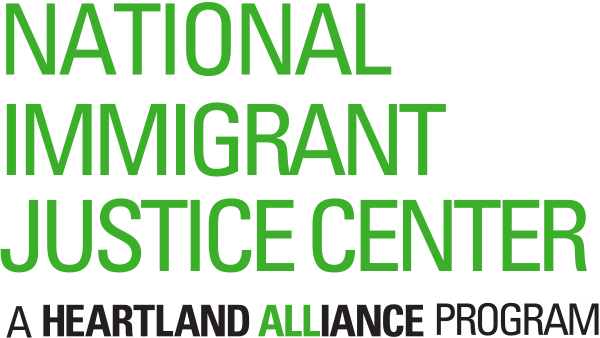The Obama administration’s newest prosecutorial discretion initiative will provide some relief to a fraction of the thousands of men and women currently facing deportation from the United States. But it also will leave many immigrant families in limbo and fails to offer serious long-term solutions to a severely flawed immigration system.
“The Obama administration has finally acknowledged that it has the authority to provide some relief to families who are suffering as a result of Congress’s failure to pass comprehensive immigration reform. But it can do much more,” said Heartland Alliance's National Immigrant Justice Center Executive Director Mary Meg McCarthy in a statement responding to the new initiative. “Time is running out for the Obama administration to work on meaningful immigration reform and end harsh and unfair enforcement practices that tear apart families.”
Below is a breakdown of how the prosecutorial discretion review process is expected to work, and what it means for immigrants and their families:
What DHS is doing: A Working Group comprised of Department of Homeland Security (DHS) and Department of Justice officials is reviewing the cases of the 300,000 people currently in removal proceedings. This working group has set criteria to identify “low priority” cases and will advise local ICE attorneys to “administratively close,” not terminate, those proceedings. This means that in the future, DHS could reinstitute deportation proceedings against individuals granted prosecutorial discretion, should the agency’s priorities change.
Criteria: The criteria to identify low priority cases are based on a memo released by DHS Immigration and Customs Enforcement (ICE) Director John Morton in June 2011. In the memo, the types of individuals eligible for prosecutorial discretion include minors brought to the United States at a young age, nursing women, persons with serious disabilities or health problems, individuals with strong community and family ties, victims of crime, etc. These criteria will be weighed against individuals’ criminal and immigration histories. Significantly, DHS has indicated that same-sex marriages will be considered “family ties” when assessing an individual's eligibility for prosecutorial discretion.
Work Authorization: Prosecutorial discretion does not automatically entitle individuals to work authorization. Some men and women who receive a reprieve as a result of the new initiative will be able to apply for work authorization, but the administration has made no promises regarding who will be eligible.
What it means for people in deportation proceedings: Individuals currently in immigration proceedings MUST continue to attend court hearings and must comply with all court orders until they receive notice from DHS about the future of their cases.
What it means for immigrants not in deportation proceedings: The prosecutorial discretion initiative applies only to individuals already in deportation proceedings. The Obama administration has not provided any guidelines for how it will treat men and women who are placed in proceedings in the future.
How the initiative will affect deportation and detention rates: The Obama administration says that this prosecutorial discretion process will not reduce the number of people in deportation proceedings or detention, but will shift the makeup of that population to include only “serious criminal offenders.” NIJC has significant concerns about the administration’s interpretation of what constitutes a “serious criminal offender,” particularly as immigration enforcement programs just as Secure Communities continue to detain men and women arrested as a result of traffic stops or other low-level crimes.
Secure Communities: The new initiative does not impact the government’s roll-out of the controversial Secure Communities enforcement program. Every time an individual is picked up for any criminal offense, however minor, his or her fingerprints will continue to be shared with DHS.
People who have questions about how the new prosecutorial discretion initiative will affect their immigration cases should consult with qualified immigration attorneys or legal aid organizations.

